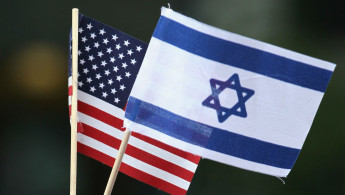Israel concludes final deal with US on visa waiver scheme, but Knesset must approve
Israeli and US authorities concluded the final deal required for Israel to participate in Washington's visa waiver scheme on Thursday.
Ayelet Shaked, Israel's interior minister, was present as the country's public security minister, Omer Bar-Lev and US deputy ambassador Jonathan Shrier signed the deal, The Jerusalem Post reported.
The arrangement will permit Israel and the US to check fingerprints belonging to each other's citizens up to 1,000 times each year and ask for details about those with serious criminal histories.
The Israeli parliament, or Knesset, must now finalize the deal by approving it in three separate readings, or voting on a bill bringing it into law.
Bar-Lev called the deal "strategically important for Israel".
"The agreement will organize [a] mechanism to strengthen the cooperation between Israel and the US in everything to do with the war against crime and terror," he was quoted by The Jerusalem Post as saying.
Israel's inclusion in the visa waiver scheme comes despite concerns raised by progressive American lawmakers, including Rashida Tlaib and Alexandria Ocasio-Cortez.
The members of the US Congress pointed to Israel's "discriminatory entry regime" in a letter obtained by the Jewish Insider news website.
The letter said the State Department's own information "contains ample documentation" of this.
"[The information] notes that US citizens, especially those on the Palestinian Population Registry, are not allowed to freely enter Israel and/or enter via the primary airport, Ben Gurion Airport," the lawmakers said.
"The current government of Israel's discriminatory policies place the country well outside the requirements incumbent on all countries to join the Visa Waiver Program, which include, among other things, having 'reciprocal privileges to citizens and nationals of the United States.'"





 Follow the Middle East's top stories in English at The New Arab on Google News
Follow the Middle East's top stories in English at The New Arab on Google News
![Netanyahu furiously denounced the ICC [Getty]](/sites/default/files/styles/image_330x185/public/2024-11/GettyImages-2169352575.jpg?h=199d8c1f&itok=-vRiruf5)
![Both Hamas and the Palestinian Authority welcomed the ICC arrest warrants [Getty]](/sites/default/files/styles/image_330x185/public/2024-11/GettyImages-2178351173.jpg?h=199d8c1f&itok=TV858iVg)
